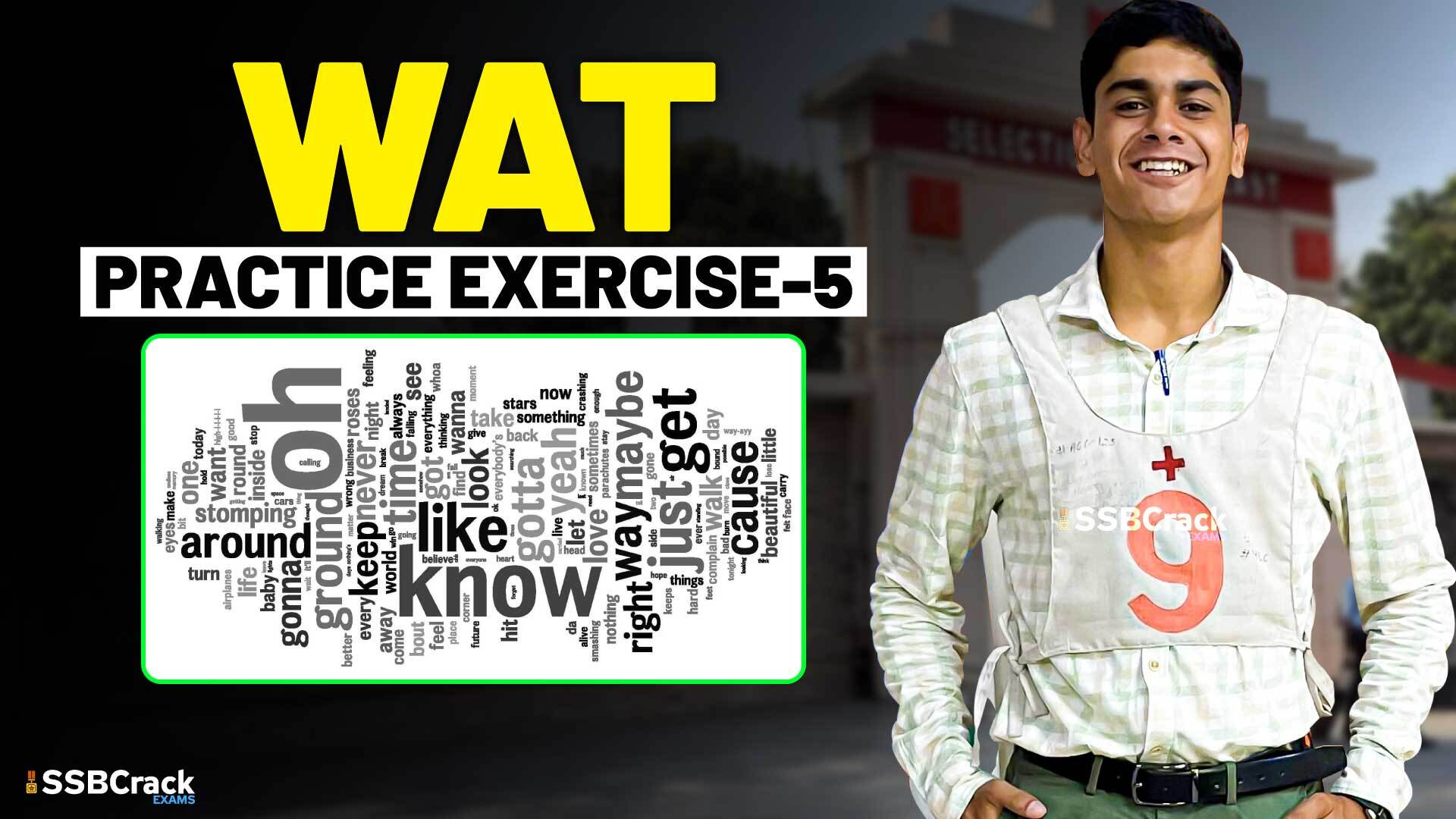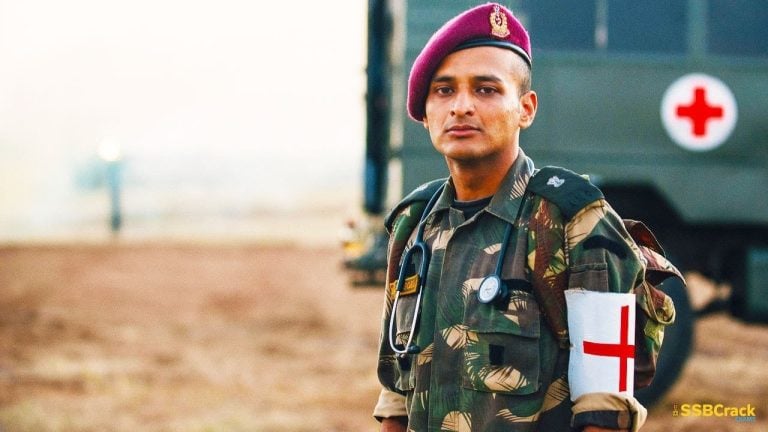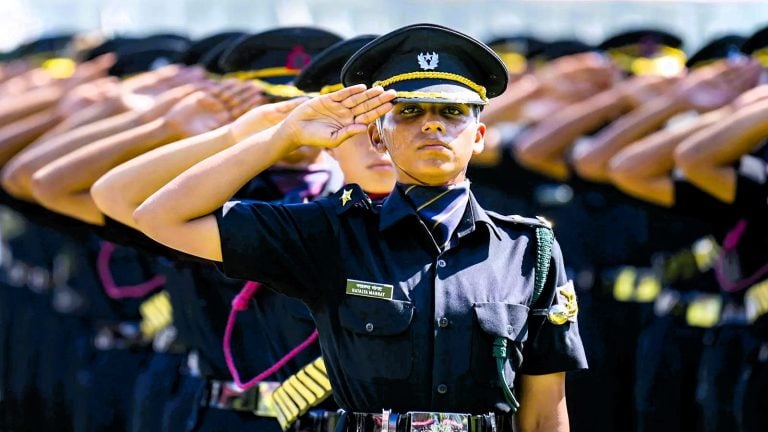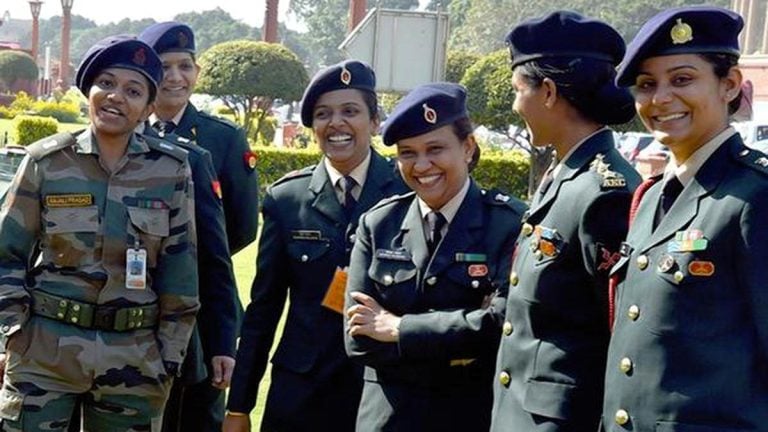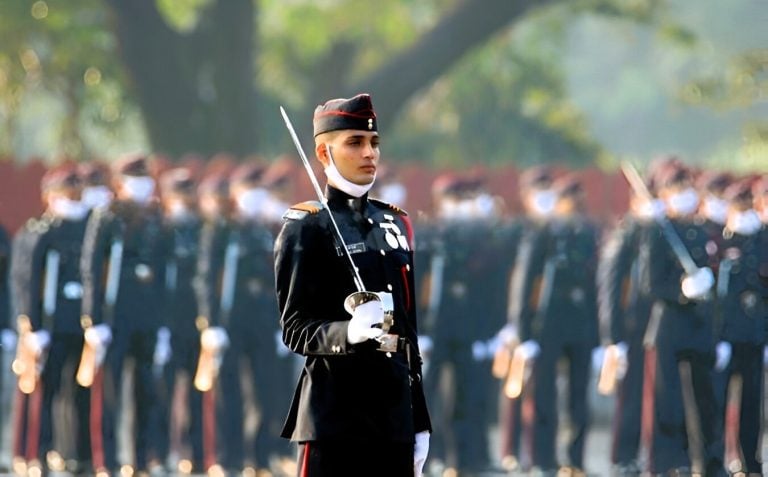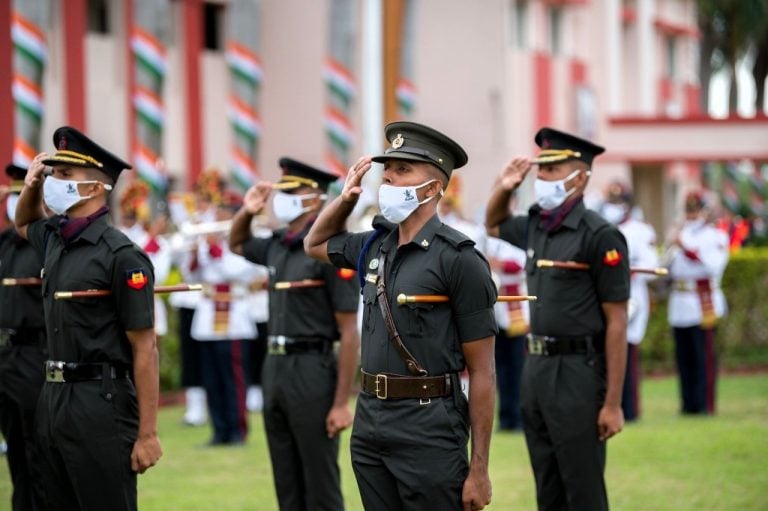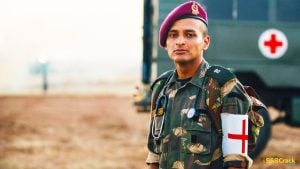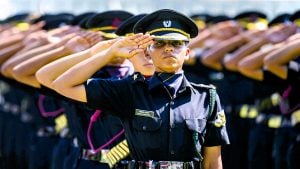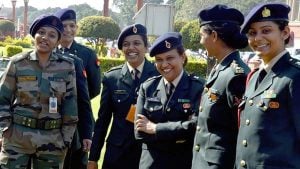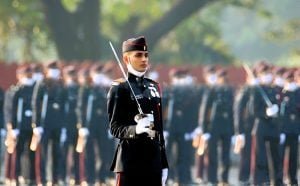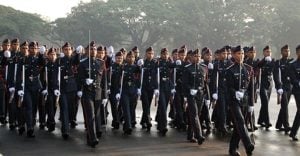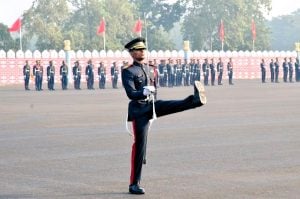In the realm of military selection processes, the Services Selection Board (SSB) interview stands as a crucial gateway for aspirants striving to join the esteemed ranks of the armed forces. Among the array of assessments conducted during the SSB interview, the Word Association Test (WAT) holds a distinctive position, serving as a window into the psyche of the candidates. Understanding the significance of WAT and preparing effectively for it can significantly enhance one’s chances of success in the SSB interview process.
The Significance of Word Association Test (WAT):
The WAT is a psychological tool used to gauge a candidate’s thought process, personality traits, emotional intelligence, and behavioral tendencies. It involves presenting a series of words to the candidates, who are then required to respond spontaneously with the first thought or word that comes to their mind upon hearing each word. These responses are analyzed to draw insights into the candidate’s personality profile.
In the context of the SSB interview, WAT serves multiple purposes:
- Assessment of Psychological Traits: WAT helps assess various psychological traits such as leadership potential, communication skills, decision-making abilities, adaptability, creativity, and emotional stability. The responses offer valuable clues about how candidates perceive themselves and the world around them.
- Evaluation of Officer-Like Qualities: The Indian Armed Forces place a premium on officer-like qualities such as initiative, responsibility, integrity, and decisiveness. WAT responses provide assessors with a glimpse into whether candidates possess these essential attributes and can demonstrate them under pressure.
- Prediction of Performance in Stressful Situations: Military operations often entail high-stress environments where split-second decisions can have profound consequences. WAT helps in predicting how candidates are likely to perform under pressure by revealing their instinctive thought patterns and problem-solving approaches.
SSB Interview WAT Practice Exercise Part 2
WAT Sample Words
FIGHT

WEALTH

TIME

WATCH
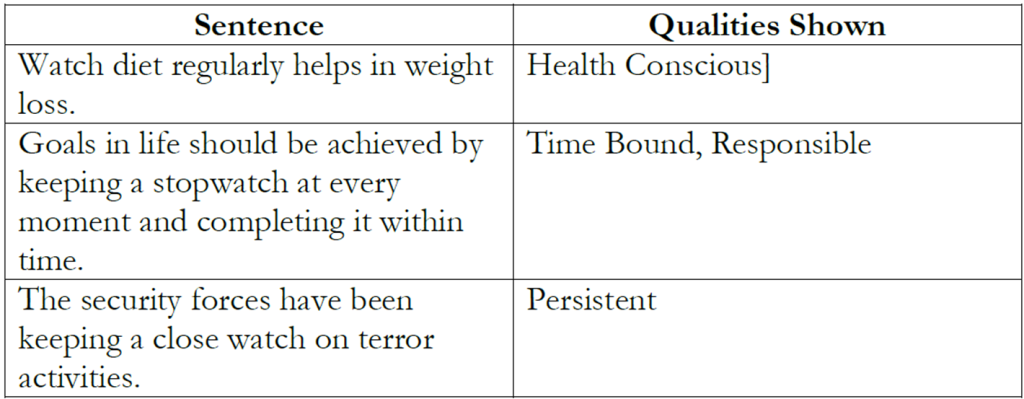
OBEY

SSB Interview WAT Practice Exercise Part 3
Practicing for WAT:
Effective preparation for WAT involves honing both linguistic fluency and cognitive agility. Here are some strategies to practice for WAT:
- Expand Your Vocabulary: Enhance your vocabulary by reading extensively across various genres such as newspapers, magazines, novels, and academic journals. Familiarize yourself with words from diverse fields including politics, science, technology, sports, and culture.
- Develop Quick Thinking: Train your mind to think on your feet by engaging in activities that require rapid decision-making and improvisation. Participate in debates, group discussions, and extemporaneous speaking contests to sharpen your cognitive reflexes.
- Practice Time-bound Exercises: Set a timer and practice responding to random words within a stipulated time frame, ideally 15-20 seconds per word. This simulates the time constraints of the actual WAT and helps improve your ability to think and articulate under pressure.
- Maintain Relevance and Positivity: Ensure that your responses are relevant to the word given and convey a positive or constructive sentiment. Avoid negative or irrelevant associations, as they may reflect poorly on your personality assessment.
- Seek Feedback: Solicit feedback from peers, mentors, or professionals who have experience with SSB interviews. Constructive criticism can help you identify areas for improvement and refine your approach to WAT.
- Reflect on Personal Experiences: Draw upon your own life experiences, achievements, challenges, and values to enrich your responses. Authenticity and self-awareness are key attributes that evaluators look for in candidates.
In conclusion, the Word Association Test (WAT) is a pivotal component of the SSB interview process, offering valuable insights into the psychological makeup of candidates. By understanding the significance of WAT and adopting effective practice strategies, aspirants can enhance their performance and position themselves as strong contenders for selection in the armed forces. Remember, preparation coupled with poise and confidence is the cornerstone of success in any endeavor, including the pursuit of a career in the military.
SSB Interview WAT Practice Exercise Part 4

